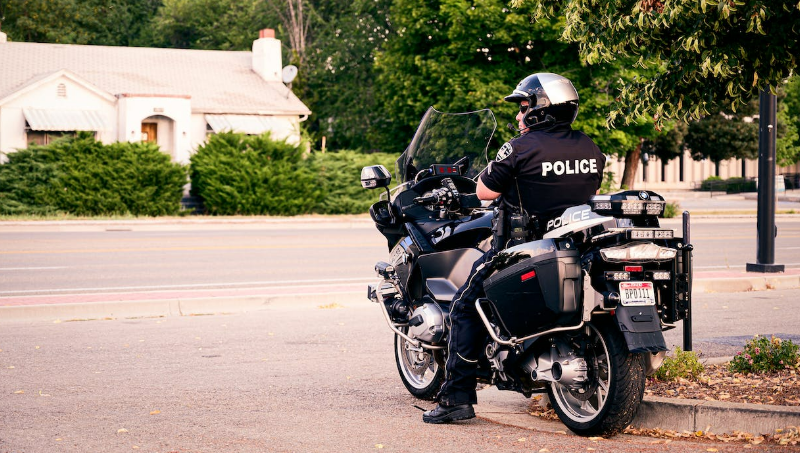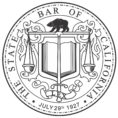The Role of Police Reports in Car Accident Cases and How They Can Influence the Outcome of a Car Accident Claim

Tensions naturally run high after a car accident, and it is often the role of the police to keep things calm. The officers are not there on the scene to take sides or pronounce judgment. Rather, they should speak calmly to everyone involved, noting the facts and recording their observations.
Likewise, the resulting police report should be objective and unbiased. This makes it a significant piece of documentary evidence in any car accident case. A police report may have a significant impact on the legal proceedings that follow, although its allegations do not determine the final determination of liability.
If you work with a California car accident attorney, he or she may be able to use the police report to build a strong case for liability. Let’s examine more about what police reports are, why they are important, and how they could help you fight for justice.
What Auto Accident Police Reports Include
Under California law, drivers must stop every time they are involved in a car accident, however minor. Next, they must call 9-1-1 immediately to report the accident to the police or the California Highway Patrol (CHP).
When law enforcement officers arrive, they will take command of the situation and begin gathering facts related to the accident to use in the police report.
Reporting facts
The police report will include the following facts:
- Date, time, and location of the crash
- Identity information for all parties, including insurance details
- Eyewitness details
- Weather conditions at the time of the accident
- Condition of the road
- Visibility when the accident occurred
- Photographs and details of damage to the vehicles involved in the accident
- Diagram of the accident
The above information is factual and is usually not open to dispute. However, police reports may also include substantiated opinions based on these facts.
Reporting opinions
The California Highway Patrol or police officers will also interview all parties involved in the accident. They may record:
- Each driver’s account of the accident
- Testimony from passengers
- Eyewitness accounts
- Accounts of other witnesses
You do not have to be an eyewitness to the accident to provide testimony that could be included in a California police report. For example, if you witnessed a driver using his or her cell phone or saw him or her consuming alcohol before the accident, this information could be included.
In California, the Collision Investigation Unit (CIU) may investigate the accident. The investigating officer will also include his or her opinions in the report, including:
- Laws that may have been violated
- What caused the collision
- Who was primarily liable for the accident
- Any party who contributed to the accident may be listed as an “Other Associated Factor” in the report
The advantage of the police report should be that it is unbiased and objective – yet the above remain subjective observations. As such, such allegations made in the police report are open to interpretation and may be contested by either or both parties if an injury claim is filed.
Obtaining a copy of the police report
Any Party of Interest can obtain a copy of the police report using a CHP 109 – Collision Request Form. You may have to pay an admin fee to receive it.
People who qualify to receive a copy include:
- Drivers
- Passengers
- Vehicle owners
- Parents/legal guardians of minors
- Insurance companies
If you are recovering from car accident injuries, obtaining the police report may be the last thing on your mind. However, if you work with a personal injury attorney, he or she will be able to obtain it on your behalf, as your legal representative.
Challenging police reports
When you receive the police report, you may be shocked to find that the investigating officer claims you are liable for the accident. The report may even make allegations that you strongly dispute, perhaps of speeding or other reckless behavior.
Your attorney may be able to challenge the police report on your behalf, but getting it changed can be difficult. He or she may request more information about the basis for the claims. A skilled attorney may also ask about the investigating officer’s credentials to check whether he or she is qualified to make the judgments included in the report.
It is important to stand your ground; don’t let yourself be bullied into accepting claims on the police report that are not true. If these are not challenged, the other driver’s insurance company or attorney may use them to force you to accept either a lower settlement or no settlement at all.
The Impact of Police Reports on Car Accident Cases
Police reports can greatly impact the outcome of car accident claims, but they are just one of several factors. While they can be useful in out-of-court settlement negotiations, they may not be admissible if the case goes to court.
When car accident claims are settled out of court, liability for the accident will be determined through negotiation. During this phase, there is plenty of back-and-forth between insurance adjusters and personal injury attorneys before they reach terms both parties accept.
Even when the police report works in your favor and the other party was ticketed, you may still find yourself locked in combative negotiations over liability.
The police report’s role in determining fault
While a favorable police report can be useful, the insurance company and your attorney will usually undertake their own investigations. That said, the police report may be used to get an initial idea of how the accident happened and who was responsible for causing it.
The police report helpfully provides the details of eyewitnesses and other involved parties. The insurance company and your personal injury attorney may contact these witnesses for more information. Eyewitness observations may be useful as leverage in negotiations.
If the police report is very clear that their driver is at fault, insurance adjusters may push for a quick settlement. However, if the liability is ambiguous, the insurance company may undertake further investigation. Their goal is always to shift blame onto another party to reduce the amount they have to pay.
A skilled attorney can use the police report and other evidence, such as medical and financial records, to build a strong case for compensation. So, while the police report can be important, it is just one piece of a complicated puzzle.
Using police reports in court
A small number of car accident claims cannot be settled through negotiation and therefore proceed to trial. If your case goes so far, is the police report filed about your accident still relevant?
For better or worse, in California, police reports are generally inadmissible in court – because they contain statements that could be considered hearsay. Therefore, police reports cannot be used to establish the truth of the statements they contain.
The major reason the allegations in police reports are considered hearsay is because, usually, the police officers did not personally witness the accident take place. Also, it is impossible to cross-examine a police report in court, which is one of the key tenets of civil court trials.
However, it may be possible to use police reports in small claims court cases where different rules apply.
Exceptions to the rule
A skilled attorney may be able to find a way of including part of the report at trial but will first have to navigate multiple hearsay exceptions. However, if a police officer appears as a witness, he or she may be permitted to review the report as a memory refresher.
In the California court system, police reports are likely to have a limited impact on the final outcome. Instead, the onus is on the attorneys of the involved parties to produce evidence to show convincingly that the other party was liable for the accident. The judge or jury will rule on the final judgment and settlement figure.
Why You Need a Car Accident Attorney
Even when a car accident police report is favorable, there are no guarantees the insurance company will offer you a fair settlement. They will look to use any other evidence to try to undermine your claim and make you settle quickly for a low amount.
Yet, when you have a car accident attorney on your side who has extensive experience with insurance company tactics, your confidence can grow. Armed with experience and firsthand legal knowledge, your lawyer is more likely to succeed in maximizing the amount of money you get in the end.
For instance, your attorney can gather the police report, examine a wide range of evidence to build a strong case, file all paperwork on time, and take care of negotiations for you. You are sure to benefit from his or her experience as your lawyer fights for the settlement you deserve – either in or out of court.
Let Harker Injury Law Build a Strong Case for You
After a car accident, the police report could be one of your most essential assets. It may help establish that you were not to blame – that you are entitled to compensation for vehicle damage and your injuries. However, a police report is just one piece of evidence needed to build a compelling case that could very well determine your contentment in life.
This is where Harker Injury Law comes in. We are here to do the hard work for you. We are led by Bronson Harker, ESQ, an experienced and skilled attorney with a track record of securing great results, including multimillion-dollar settlements, for people injured in vehicle accidents.
Find out today if you have a personal injury case. Contact us for a free consultation with an experienced personal injury attorney to explore your legal options.










